Theresa May speech: PM accuses EU of 'meddling' in general election, as it happened
'Threats against Britain have been issued by European politicians and officials,' the PM said.
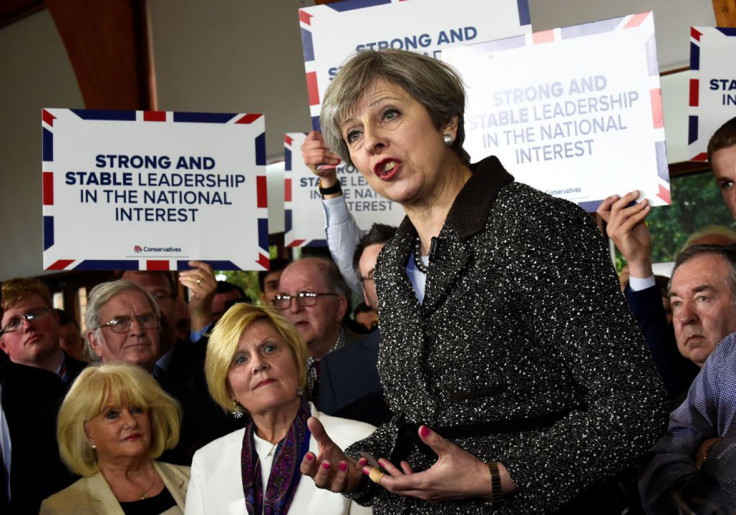
Theresa May has delivered a scathing attack on Brussels, accusing unidentified European politicians and officials of seeking to influence the general election through a series of "threats".
Speaking outside Downing Street after visiting the Queen at Buckingham Palace to mark the dissolution of Parliament, the prime minister ratcheted up hostilities with the EU.
These are the key points of her speech:
- "The 2015 Parliament is now at an end, and in 36 days the country will elect a new government and choose the next prime minister. The choice you now face is all about the future."
- "Whoever wins on 8 June will face one overriding task: to get the best possible deal for this United Kingdom from Brexit."
- "In the last few days, we have seen just how tough these talks are likely to be."
- "Britain's negotiating position in Europe has been misrepresented in the continental press. The European Commission's negotiating stance has hardened. Threats against Britain have been issued by European politicians and officials."
- "All of these acts have been deliberately timed to affect the result of the general election that will take place on 8 June."
- "The events of the last few days have shown that whatever our wishes and however reasonable the positions of Europe's other leaders, there are some in Brussels who do not want these talks to succeed, who do not want Britain to prosper."
The newspapers are broadly supportive of Theresa May's harsh words for the EU portraying her as someone who is prepared to stand up to Brussels.
The Daily Mail headlines: 'Hands off our election', while The Sun headlines 'Nuclear Juncker, May goes ballistic at EU'.
The splash in the Express reads: 'Don't meddle in our election'.
Meanwhile the Times reports that May's intervention is an attempt to isolate hardliners and appeal to member states.
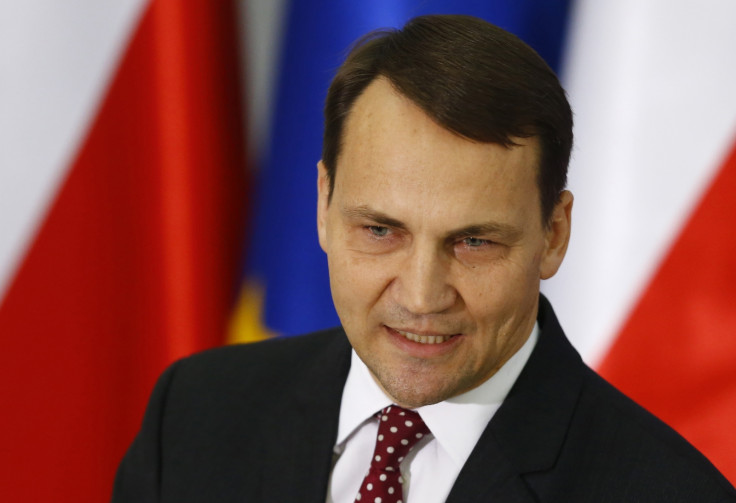
Former Polish foreign minister, Radosław Sikorski has given BBC's Newsnight his explanation for the difference in opinion between Brussels and the UK over Brexit.
He said that the EU delegation did not expect the British side to be seriously arguing what was being said in the British press over their demands for Brexit and that it appeared the British side "believed in their own propaganda".
"They (the EU) tried to signal: 'look you need to become more realistic'. In the terms of the British election campaign, it makes sense to make the EU the enemy, but of course that is a very dangerous game".
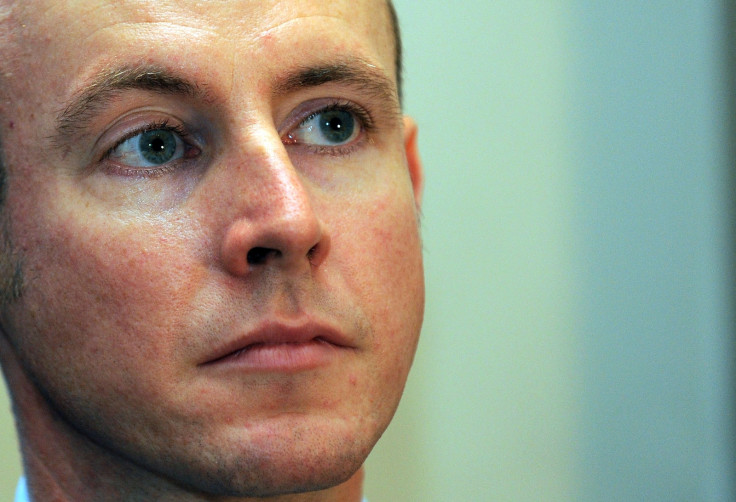
MEP for south east England, Daniel Hannan, has told BBC's Newsnight that the EU's formal position on Brexit is closer to the UK's than what the British government may think.
He said: "We agree that there should be a free trade agreement, we agree on military and security cooperation, we agree on not wanting a hard border in Ireland, we agree on reciprocity for the rights of citizens who have settled in each other's jurisdictions.
"There is no reason for this to be a process that spins out of control but it was unfortunate to have had this leak and this story about the money which can only have had the effect it had," he added.
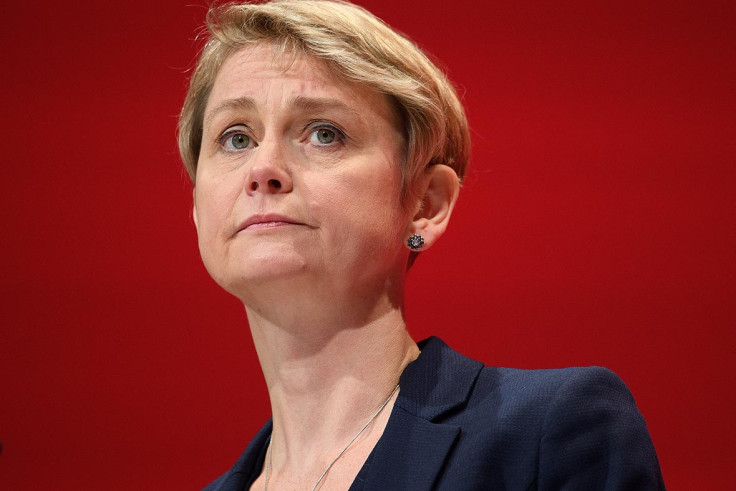
The chair of the Commons home affairs select committee, Yvette Cooper has described Theresa May's attack on the EU as "paranoid if she believes it".
She wrote in the Huffington Post: "The idea that the EU could try or succeed to influence our election result is a joke. No-one here would fall for it, and frankly anything the EU tried would be counter productive anyway."
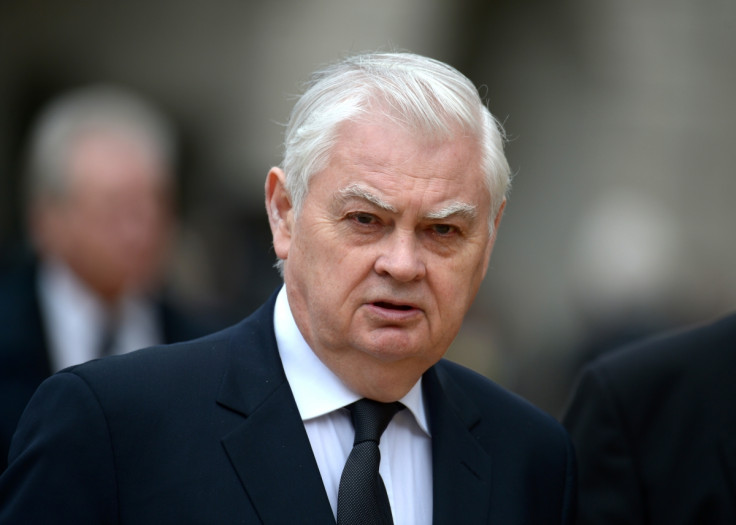
Accusations that there has been foreign interference in the UK election has reminded many of the role of Russia in recent ballots.
Former chancellor Norman Lamont has raised the spectre of Russia, and backed Theresa May's comments, by saying that even Vladimir Putin would "blush" at attempts by Brussels to influence the election on 8 June.
He said, according to the BBC: "The prime minister is absolutely right to speak out and reject Brussels' attempts to interfere in the British election and pressurise the British people.
"The efforts of Mr Juncker and Mr Barnier would cause Mr Putin to blush. It's not for Mr Barnier or Mr Juncker to keep telling the British people they will be worse off after Brexit. The British people are perfectly capable of making up their own minds and it's their decision."

He faced wipe out at the last election, so it is probably with a hint of satisfaction that former Liberal Democrat deputy prime minister Nick Clegg took a swipe at Theresa May.
He described her as "either scaremongering or being paranoid" by saying that EU officials interfered in the election.
"The coalition of hard Brexit between the Conservatives and UKIP is now complete - and it will be hard-pressed families up and down the country who will suffer most," he said.
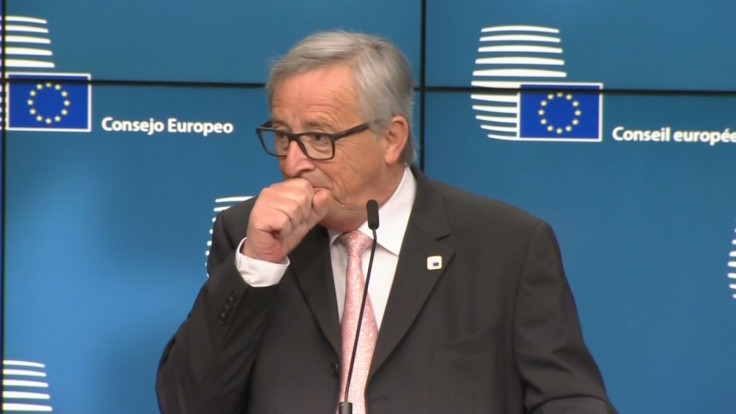
Business editor of IBTimes UK, Gaurav Sharma, takes a look at the claims from both sides about Britain's prospective Brexit divorce bill.
He writes that European Commission president, Jean Claude Juncker, can not put a precise figure to the UK's Brexit bill because, without proper costing and budgetary analysis, one has not been arrived at yet.
Sharma writes: "It'll be a while yet before the level of hot air subsides, but neither will Brussels charge London €100bn, nor will the latter walk away free without paying a sum that both parties will come to an agreement over. Till then brace yourself for exaggerated Brexit arithmetic and aggressive newspaper sales pitches."
A while back a fellow by the name of Isaac Newton mentioned something about there being an equal and opposite reaction for every action.
Naturally, the prime minister's strong words are garnering an equally strong response.
May neither stable nor strong switching in 24 hours from "just Brussels gossip" to a swivel-eyed paranoid Brexit conspiracy theory. Nurse!
— Kevin Maguire (@Kevin_Maguire) May 3, 2017
She drops a Bomb on Brussels and our Negotiations, and thinks the UK can survive on selling the things , she's clinically Insane #GE2017 pic.twitter.com/Q9b22HDgR6
— #MurdochsDemocracy.! (@evertonfc2) May 3, 2017
Those of a different opinion are "extremists", Brussels is trying to rig the election. She's that close to saying Make Britain Great Again.
— David Schneider (@davidschneider) May 3, 2017
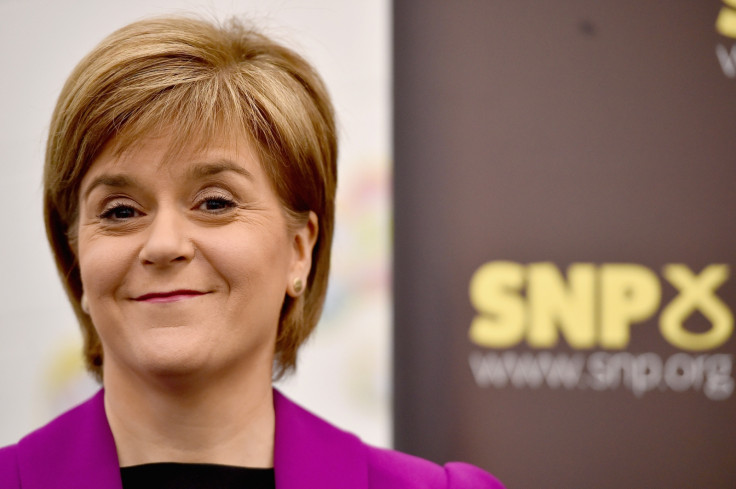
Meanwhile, Scotland's First Minister issued the following response to May's speech:
"It is vital for jobs and living standards that the UK gets the best possible deal from Brexit.
"But for all the bravado, the fact is that the UK government's leverage in these negotiations is extremely limited.
"So for Theresa May, driven by entirely narrow, partisan motives, to deliberately seek to poison the well will make the negotiating task ahead even harder.
"This is an irresponsible, gratuitous attack on our European neighbours, which is aimed at diverting attention from the Tories' dismal record on health, the economy, austerity and welfare by painting the EU as a bogeyman.
"Insulting our neighbours simply makes the Brexit mountain much harder to climb, but unfortunately it is par for the course from Theresa May.
"She called this election not in the national interest, but for narrow party political interests and it is clear she now intends to use Brexit for the same narrow purposes.
"A Tory government without a strong opposition is not in the national interest of the UK or any part of it. And more than ever – as the Tories squabble childishly with Europe – it is clear we need a strong SNP voice to stand up for Scotland's interests.
"Over the last two years it is only the SNP that has put Scotland first at Westminster and in Europe and it is only SNP MPs backed by a strong Scottish parliament who can protect Scotland from the Tories' deliberately damaging approach."
Reaction to May's unprecedented attack is pouring in. Here's what Tony Blair's former communications chief and IBTimes UK columnist, Alastair Campbell thinks:
"Today it became clearer than Britain's entire future is just a pawn in her electoral game.
"Her little tantrum on the steps of Number 10 made clear that the electioneering is more important than the damage she might do to Britain. She says she wants a deal but conducts herself in a manner designed to come away without one.
"But as long as the hard Brexiteers and the Brextremist Lie Machine are happy so is she."
Another touch of the Erdogans about @theresa_may today.
— Alastair Campbell (@campbellclaret) May 3, 2017
The view from Brussels:
PM's suggestion Brussels trying to influence #GE2017 "pure fantasy" senior EU source tells me
— katya adler (@BBCkatyaadler) May 3, 2017
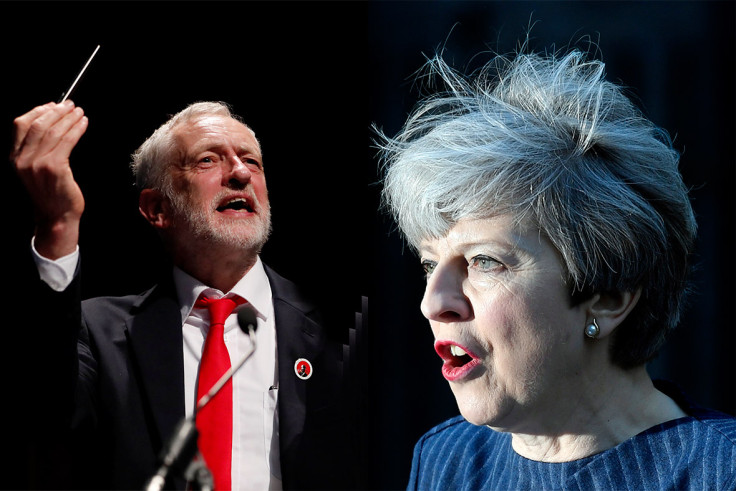
Jeremy Corbyn accuses the prime minister of using Brexit as a pawn in the General Election.
"Theresa May is playing party games with Brexit in the hope of winning advantage for the Tories in the General Election," the Labour leader said.
"By winding up the public confrontation with Brussels, the prime minister wants to wrap the Conservative party in the Union Jack and distract attention from her government's economic failure and rundown of our public services.
"But Brexit is too important to be used as a political game in this election.
"These are vital negotiations for every person in Britain and for the future of our country. But Theresa May is putting party interest ahead of the national interest.
"The prime minister is right that there are those in Brussels who don't want a deal. But that is also true of leading figures in the Tory party, who want to use Brexit to turn Britain into a low wage tax haven.
"The prime minister says that no deal would lead to a different economic model for Britain.
"In plain terms, that means wiping out employment rights and consumer protections and giving still more tax breaks to the rich and big corporations.
"That's the threat and the risk that comes from this Tory government.
"Only Labour can be trusted to negotiate a Brexit deal that puts jobs and living standards first. Labour will negotiate a Brexit for the many not the few."
Strong and stable or dangerously confrontational?
Here's ITV's political editor, Robert Peston's take:
"There is a risk that the ill-tempered debut of this Brexit process could deteriorate rapidly into serious breakdown - with the probability of the UK tumbling out of the EU in a chaotic and costly way that much more likely.
"So the question for all of us is whether T May is being strong, stable and realistic or dangerously confrontational?
"Perhaps the most important thing for you to know is that ministers believe Germany and Merkel are behind what they see as sabotage by Juncker and Selmayr.
"Which brings with it the possibility therefore that confrontation with Brussels becomes a stand off with Europe's most powerful economy."
Martin Selmayr is Juncker's chief of staff.
Read Theresa May's speech in full:
I have just been to Buckingham Palace for an audience with Her Majesty The Queen to mark the dissolution of this Parliament.
The 2015 Parliament is now at an end, and in 36 days the country will elect a new government and choose the next prime minister. The choice you now face is all about the future.
Whoever wins on 8 June will face one overriding task: to get the best possible deal for this United Kingdom from Brexit.
And in the last few days, we have seen just how tough these talks are likely to be.
Britain's negotiating position in Europe has been misrepresented in the continental press.
The European Commission's negotiating stance has hardened.
Threats against Britain have been issued by European politicians and officials.
All of these acts have been deliberately timed to affect the result of the general election that will take place on 8 June.
By contrast, I made clear in my letter to the President of the European Council invoking Article 50 last month that, in leaving the European Union, Britain means no harm to our friends and allies on the continent.
We continue to believe that no deal is better for Britain than a bad deal.
But we want a deal. We want a deep and special partnership with the European Union.
And we want the EU to succeed.
But the events of the last few days have shown that - whatever our wishes, and however reasonable the positions of Europe's other leaders - there are some in Brussels who do not want these talks to succeed.
Who do not want Britain to prosper.
So now more than ever we need to be led by a prime minister and a government that is strong and stable.
Because making Brexit a success is central to our national interest. And it is central to your own security and prosperity.
Because while there is enormous opportunity for Britain as we leave the European Union, if we do not get this right, the consequences will be serious.
And they will be felt by ordinary, working people across the country.
This Brexit negotiation is central to everything.
If we don't get the negotiation right, your economic security and prosperity will be put at risk and the opportunities you seek for your families will simply not happen.
If we do not stand up and get this negotiation right we risk the secure and well-paid jobs we want for our children and our children's children too.
If we don't get the negotiation right, if we let the bureaucrats of Brussels run over us, we will lose the chance to build a fairer society with real opportunity for all.
The choice the country faces now is very simple. Because there are only two people who can possibly be prime minister after the 8th of June to negotiate Brexit.
It is a choice between me – and Jeremy Corbyn.
With me you will get strong and stable leadership, and an approach to Brexit that locks in economic growth, jobs for our children and strong finances for the NHS and the country's schools.
Or you will get Jeremy Corbyn with a hung parliament and a coalition of chaos.
Britain simply will not get the right Brexit deal if we have the drift and division of a hung parliament.
And so with Jeremy Corbyn negotiating Brexit we will all pay a high price.
If instead you want the best negotiation for you and for Britain, then you must make your vote count.
Every vote for me and my local candidates in this election will be a vote to demonstrate that unity of purpose.
Every vote for me and my local team will strengthen my hand when I negotiate for Britain in Europe.
Every vote for me will mean we can get on with delivering my plan for a stronger Britain.
For while the opposition parties look to refight the battles of the past or to paint a vision of the future that is filled with despair, I am ambitious for Britain.
Because I believe our best days lie ahead.
I believe that with dedication and hard work, we can make a success of Brexit, have confidence in our country and stand tall in the world once again.
I believe that we can build a stronger Britain, where our economic progress is secured and prosperity and opportunity is shared around the country.
I believe we can build a stronger economy that rewards all those who work hard, and creates secure and well-paid jobs for our children and our children's children too.
I believe we can build a fairer society with real opportunity for all, where everyone has the chance to get on in life – where every child gets a good school place and working people can buy a home of their own.
I believe we can build a more secure and united nation by taking action against the extremists who seek to divide us, and standing up to the separatists who wish to tear our country apart.
And I believe these simple values and aspirations are shared by ordinary working people everywhere – and that they can bring this nation together as a result.
For as we face this critical time for our country – five years that will determine the course of this United Kingdom for generations to come – we must do so together.
With a unity of purpose to make a success of Brexit and to build a stronger, more secure country too.
So in the weeks ahead, I will travel to all corners of this United Kingdom with a positive vision for Britain and a determination to earn your vote.
And I will do so with a clear message:
If, like me, you believe in Britain...
If, like me, you want our country to succeed...
If, like me, you believe in putting division behind us, in looking to the future and getting on with the job of building the stronger, more secure country that we need...
Then fix your sights on the future, and in this unique and crucial election for our country...
Give me your backing to lead Britain.
Give me your backing to speak for Britain.
Give me your backing to fight for Britain.
And give me your backing to deliver for Britain.
A stronger Britain, where our economic progress is secured and prosperity and opportunity is shared by all.
A Britain that works, not just for the privileged few, but for every single one of us.
Political commentators have reacted with surprise and bemusement to May's extraordinary speech. Here are some of the best:
"Well that was definitely strong. Stable, not so much," wrote Jack Blanchard, the Daily Mirror's political editor.
John Rentoul, the chief political commentator at the Independent, said: "There are two ways of negotiating: seek common ground or threaten to go to war. Theresa May has chosen 2nd option for Brexit."
Ian Dunt, the editor of Politics.co.uk, said he was "genuinely f****** horrified" by May's comments. "I am honestly not sure I have ever seen a more irresponsible comment by a British prime minister," he posted on Twitter.
There's no way you can twist this to pretend it will improve our chances in talks. She is now directly acting against the national interest.
— Ian Dunt (@IanDunt) May 3, 2017
Britain's withdrawal from the EU is a prominent theme in the general election and May identified Brexit negotiations as "central to everything" in her speech.
Whoever is elected in June faces an uphill task, amid reports the EU could slap a €100m (£84bn, $109m) divorce bill on Britain. Brexit Secretary David Davis rejected the figure, saying: "We are not supplicants." He added: "They lay down what they want and we lay down what we want."
© Copyright IBTimes 2025. All rights reserved.






















